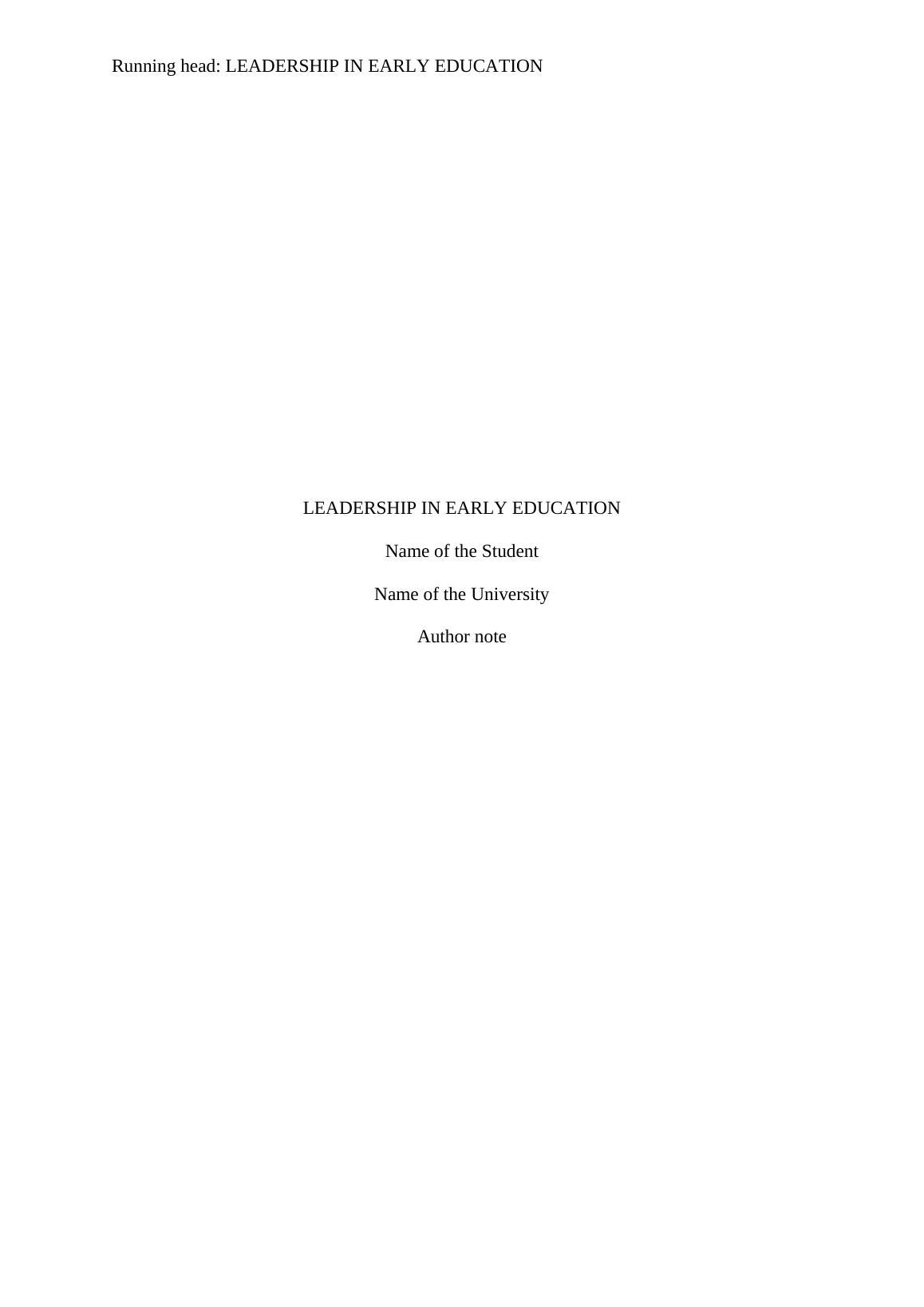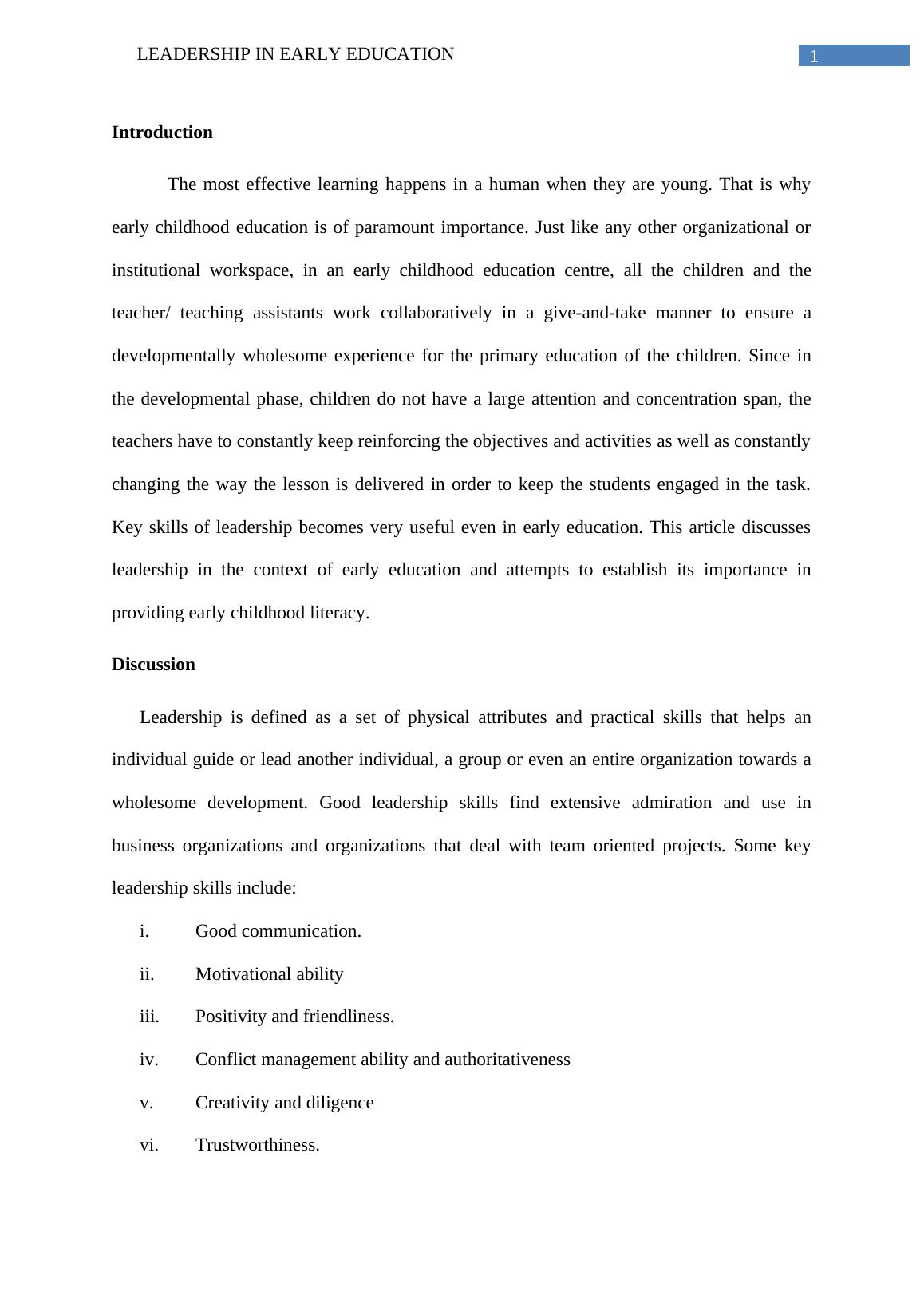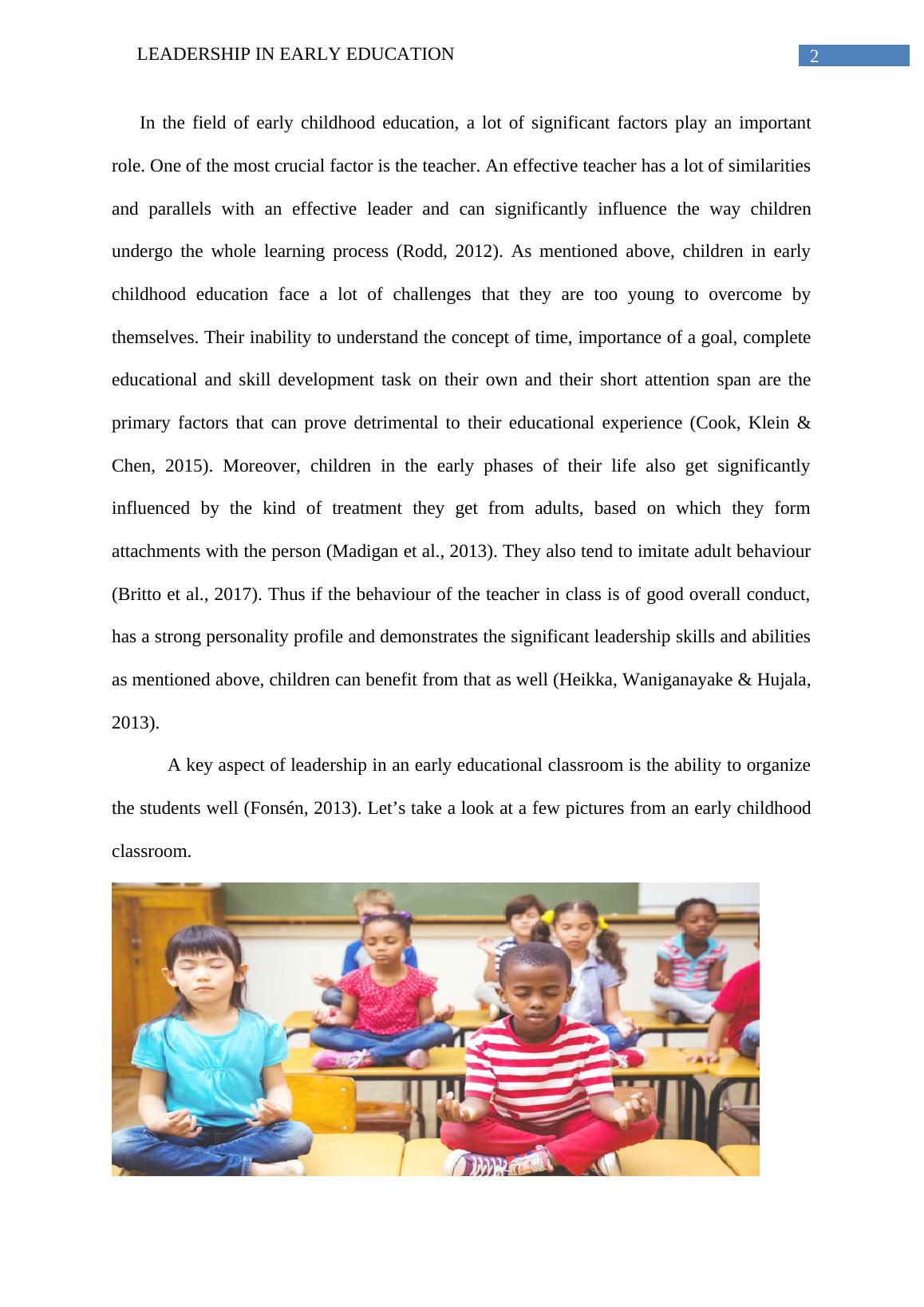Leadership in Early Education
Added on 2022-11-14
10 Pages2277 Words219 Views
End of preview
Want to access all the pages? Upload your documents or become a member.
Guidance Approach to Teaching: Creating a Nurturing Environment for Early Childhood Development
|4
|778
|204
The Role of ICT in Childhood
|4
|783
|24
Childhood Studies: Behavioural Engagement in the Transition to School
|10
|2858
|295
Leadership in Early Childhood Education and Care Settings
|7
|1716
|348
Report on Early Childhood Educations and Advantage
|10
|3128
|47
Assignment on Wellbeing of A Child
|9
|2250
|28


